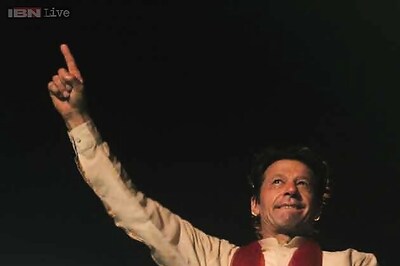
views
The recent persistent drop in India's trade deficit has given us a reason to rejoice. Perhaps, it's a Diwali gift from goddess Lakshmi. But, what real implications if any does it have for the Indian economy and what to expect in the near future? The trade deficit has fallen as a result of rising exports and drop in imports of gold (primarily due to higher import duties imposed by the government). However, I find the rise in exports to be a more of a reason to cheer than the dip in trade deficit itself for reasons I explain below.
The rise in our exports indicates that our economy has responded well to the recent depreciation in our currency. There would be reasons to worry if the rupee depreciated with out any improvements in our exports and balance of trade.
Let me begin by briefly explaining the interplay between, exchange rates, trade deficit and economic growth.
Depreciation in domestic currency does not always spell bad news for the economy. Indeed a rising trade deficit without a drop in relative value of the domestic currency may harm the economy in the long run. Depreciation of domestic currency increases the relative costs of imports and leads to a drop in demand for imports. At the same time, it allows foreigners to purchase domestic goods and services at lower dollar dominated prices. However, this will not necessarily lead to a reduction in trade deficit. The trade deficit is a function of the value of exports relative to the value of imports. While depreciation in rupee will increase the quantity of exports, we will also earn less per unit of goods and services imported. This means that for our trade deficit to go down, the rate of increase in exports should exceed the rate of fall in value of rupee. This will only happen if the depreciation in rupee is not accompanied by an increase in inflation. If inflation continues to rise, any competitive advantage our firms gain due to rupee depreciation will be wiped out by rising costs of input and consequently we will not observe any positive impact on our trade position. Another common misconception is that an increase in trade deficit is always bad for the economy. If domestic economy is doing well, firms and consumers may have surplus cash to invest in superior technology and high quality consumer durables. This in turn will boost productivity and raise the quality of living standards, which in turn will lead to further growth. Conversely, a drop in trade deficit is not always good news. Note that trade deficit can reduce if there is drop in the value of imports even if the value of exports remains unchanged. However, such reductions in trade deficit only due to drop in demand for imports may not have any positive long-term implications for the health of the economy.
First, it may imply that we do not have sufficient capital to import foreign goods. Alternatively, governments can reduce trade deficit by increasing the cost of imports. Indian government did exactly this when it hiked the duty on gold imports to 15 per cent and imposed a 36 per cent duty on import of tvs. In summary, if trade deficit reductions are not driven by an increasing foreign demand for our goods and services, this may simply be a sign that our economy is slowing down.
From a longer-term perspective, the only way to bring down trade deficit is by improving the productivity and thereby the relative competitiveness of our domestic manufacturing sector relative to foreign firms. Investing in infrastructure development will go a long way in achieving these goals. The poor quality of our infrastructure: inconsistent supply of electricity, transportation bottlenecks etc take a huge toll on the efficiency and productivity of our manufacturing sector. Fortunately, for us the current RBI governor has promised to free up the markets of the much-needed $1 trillion in investments required to boost our core infrastructure. In the long run, this should boost our productivity and lead us on a path of sustainable economic growth. Ultimately, the success of this promise will hinge on our ability to raise this capital without running huge fiscal deficit and an "effective", "corruption-free" use of the freed up resources.
Now, the current drop in trade deficit is indeed a pleasant surprise for two reasons. First, our exports are up by 11.2 per cent from a year earlier. This signals an increase in quantity of our exports over and above what would be mandated by a simple depreciation in rupee. Moreover, exports have been rising steadily since July and have been 11 per cent-12 per cent higher over the same months in 2012. If this trend continues, then growth and employment should pick up in the coming months. Secondly, this also brings in much needed respite for the RBI as it will ease up inflationary pressures and consequently the need to engage in any immediate liquidity-tightening measures.
However, we should still remain cautious of drawing any long-term implications of this drop in trade deficit on CAD as gold imports will increase in the upcoming Diwali season. Further, the looming elections, coupled with a delicately held together coalition will tie government's hand from raising fuel prices should our fuel subsidy bill and consequently CAD rise due to an increase in price of crude oil or due to a further depreciation in rupee. Indeed the government shied away from the proposed Rs 5 per litre hike in diesel price while reducing petrol prices by Rs 3.05 per litre, the steepest cut in 5 years. Fortunately, the oil prices seem to be on downward trend and rupee appears to be stable.
For now, I remain cautiously optimistic about our economy.
(Professor Shashwat Alok teaches at the prestigious Indian School of Business (ISB) Hyderabad. Alok received his PhD from Olin business School, Washington University in St Louis. His primary research interests are in the areas of Corporate finance. His work has been accepted at various academic conferences including those hosted by the American Finance Association and European Finance association.)




















Comments
0 comment